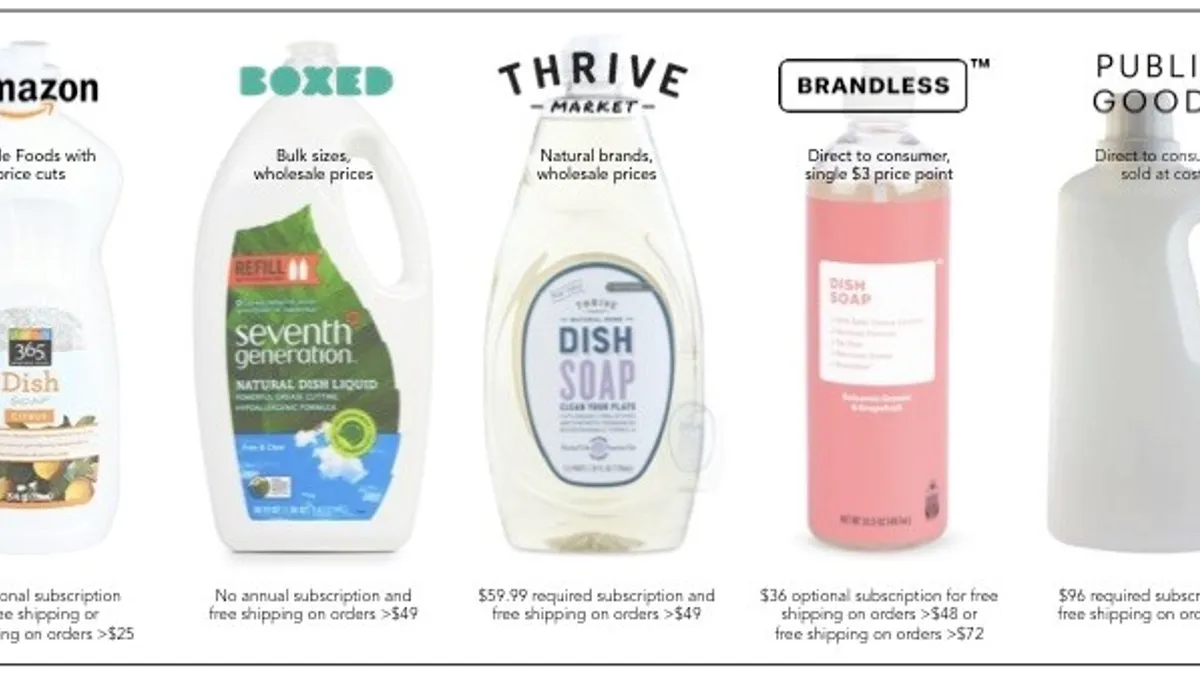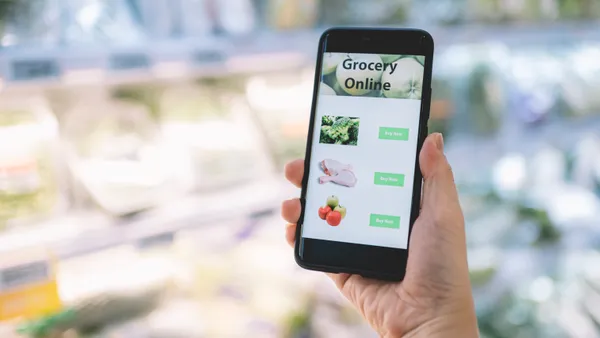Dive Brief:
- Private label's online dollar share more than doubled over the past year, according to Nielsen. CPG private label sales now account for 3% of online dollar sales, up from 1.3% two years ago.
- Household and baby products are leading store brand e-commerce sales. Twenty-seven percent of online dollar sales in aluminum foil are now private label, up from 10% two years ago, while e-commerce sales in the baby wipes category are now 20%, up from 14% two years prior. Fourteen percent of online paper towel sales are now claimed by store brands, compared to 4% two years ago.
- Walmart is leading the space with a 48% share of CPG online private label sales, up from 27% in 2017.
Dive Insight:
Consumers have welcomed private brands into their shopping carts, and in-store momentum should continue to build in the years ahead. Store brands currently account for 17% of CPG sales in brick-and-mortar and sales of private label in-stores have increased by $7.9 billion over the past three years, according to Nielsen.
But retailers need to take a close look at their online store brand positioning. E-commerce is a channel where niche brands thrive, making it an ideal place to promote new private label products and promising alternatives to national brands in categories like household goods. Nielsen points to the success of the top four dish soap brands: Mrs. Meyer’s Clean All Day, Seventh Generation, Babyganics and Method. Together, these brands make up 41% of online dish soap sales versus 3% in-store.
"Private label has emerged as the new challenger brand in e-commerce," Nielsen researchers noted in their report.
The e-commerce opportunity in store brands varies from category to category. Household and baby products are standouts, Nielsen notes, while health and beauty products perform much better in stores.
While most retailers offer private label products online, they may not be doing enough to push the sale and make their own brands visible. E-commerce giant Amazon is ahead of the curve with an abundance of private label lines, many of which fall into the household and baby product categories. Other online-only retailers like Thrive Market and Brandless have made names for themselves by selling high-quality private label products and cultivating loyal customers in turn.
Walmart however, has made the biggest splash in online private label sales — a finding that's likely due to the company's scale and aggressive e-commerce with curbside pickup and delivery.
Private label sales are set to outpace those of national brands, according to IRI data. But IRI also found that traditional grocers are losing a significant portion of these sales to mass and club retailers like Costco. By pumping up key store brands through e-commerce, grocers could very well get their mojo back.













